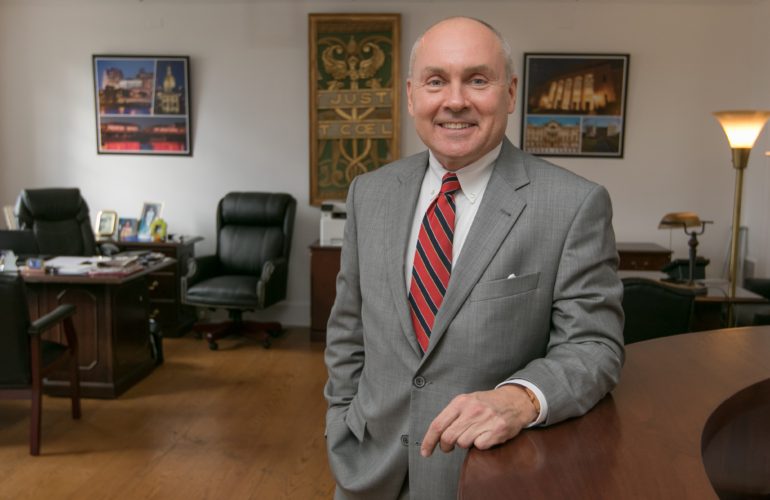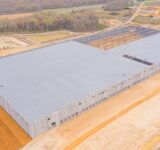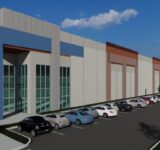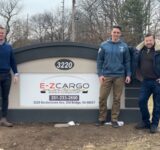George Sowa was named founding CEO of Greater Trenton in July 2016.. — Photo by Mary Iuvone for Real Estate NJ
By Joshua Burd
George Sowa’s personal guided tour through Trenton lasts just under 45 minutes, complete with local landmarks, personal anecdotes and trivia about the capital city’s deep history.
But the most important parts of the route are the buildings and physical assets that speak to its potential and showcase all that it has to offer — from the sites around the Trenton Transit Center, to the Delaware River waterfront to the developable surface lots up and down Route 29.
It’s a tour that Sowa had given 23 times in less than four months after being named CEO of Greater Trenton, a nonprofit economic development organization, and it appears to be one his favorite parts of the job. It also happens to be one of the most important parts, as he undertakes the challenge of attracting new business and new residents to the city.
“In order to actually see results, we have to have the activity — and before we get the activity, we have to have the interest,” Sowa said during a recent interview. “So right now, we’re trying to generate the interest and conducting a number of tours with brokers, developers, investors and other interested parties.”
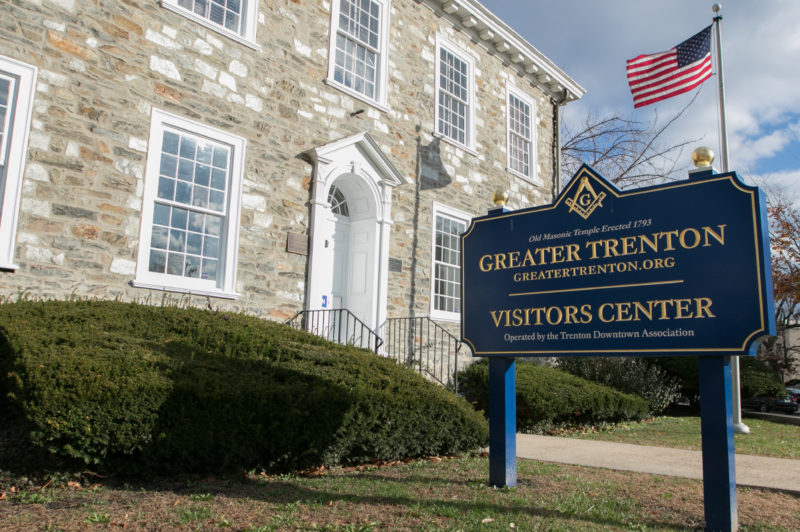
The veteran development executive took the helm of Greater Trenton in July, some nine months after local business leaders came together to establish the organization. It’s a natural role for Sowa, a Trenton native who spent nearly 20 years with Brandywine Realty Trust, with experience that includes projects in cities such as New Brunswick and Camden.
With his new assignment, Sowa sees a city that has fallen on hard times and has to overcome years of bad press. But Trenton has what it takes to change the narrative, he said, starting with all-important infrastructure such as a transit hub that links to four different rail lines.
Couple that with national demographic trends — namely, movement by millennials and empty-nesters into rail-served, urban areas — and the fact that Trenton has the actual capacity to grow. Sowa noted that the city’s infrastructure supported 150,000 residents in its heyday, but its population today has dwindled to about 85,000.
“It’s a great nexus right now between what Trenton has and what people want,” he said. “So now we have to set the table and put the elements in place to make it attractive for people to come back into the city.”
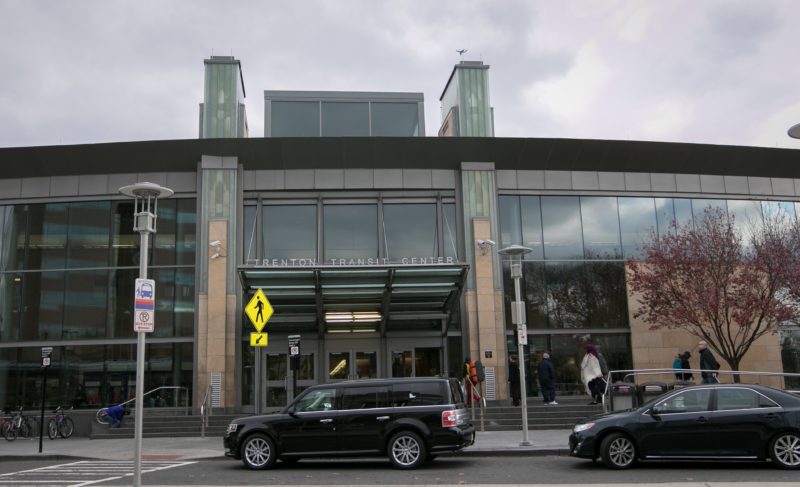
He said some of those elements already exist, such as a vibrant, organic arts scene and venues like Arm & Hammer Park. Others are there, but need some work. For instance, one of Sowa’s first priorities is activating the Delaware River waterfront — which includes stretches of overgrown vegetation, guard rails and uninviting footpaths — and reconnecting it to the rest of the city.
And while Sowa hopes to get other developers and businesses to see Trenton’s potential, some have already put their faith in the capital city. He pointed to Thomas Edison State University’s new nursing school on West State and Calhoun streets, the New Jersey Association of Realtors’ new headquarters on Hamilton Avenue and the redevelopment of the former Roebling Steel complex nearby.
“There are things happening,” Sowa said. “And the idea is to make sure that people are aware that there are things happening and that we absolutely are open for business.”
Despite his background as a developer, he said Greater Trenton’s role at first will be as more of a facilitator for other investment. But he doesn’t doubt his resume and Rolodex will come in handy.
To discuss it all, Real Estate NJ sat down with Sowa recently for a Q&A.
Real Estate NJ: Obviously this is an exciting opportunity for you, but you spent a long time at Brandywine. Was it tough to leave?
George Sowa: It’s a great company and I continue to have a lot of great friends there and wish them nothing but the best, but I was born in Trenton. My grandparents came to Trenton over a hundred years ago from Romania and settled in town. My mother and her three sisters all graduated from Trenton High. So this is a sentimental journey for me, rather than other aspects that come to mind when you take a new position.
But it’s exciting, it’s invigorating and hopefully very fulfilling to have a small impact on the city. And I tell people that we respect the history of the city, but we can’t be bound by that, because … when we’re helping to shape the future, you need to really adjust for what’s here today and what’s going to be here in the future, rather than in the past.
It’s a great opportunity to hopefully be able to make a positive impact here in town.
RENJ: Let’s go to something that actually predates your time here — the redevelopment of the Roebling Steel complex near Hamilton Avenue. Can you have an impact on a project that is already underway?
GS: It’s really raising the bar in terms of rents and the transit orientation for folks that are interested in Trenton. … The developers there (HHG) are doing the residential right now, which is under construction, but there’s also an office piece there — 100,000 square feet that they also could develop. My background in development includes a lot of office, so I meet with brokers to make sure people are aware of that opportunity. While we’re not the developer for it, our role is to make sure that people are aware of the benefi ts of coming to Trenton and work hand in hand with the development community and the city. And we act as Switzerland in a lot of cases here, where we don’t represent the city or the developers, but we really are the middle party to bring folks together.
RENJ: And I’d imagine that you know some brokers and office users that local developers and city officials might not.
GS: I’ve been in New Jersey real estate for a very, very long time, so I have some deep relationships. And I can not only talk about it, but I’ve done a lot of development myself. So we can be a resource for people, and because some people are coming into town for the first time and looking to develop projects across a spectrum of sizes … I’d like to think I can assist on both (big and small) because I’ve done both over the years.
RENJ: Have you been meeting with Mayor Eric Jackson often?
GS: Multiple times with the mayor and his staff. They’re dedicated, they’re absolutely interested in making good things happen in the city and willing to listen and work together. That’s what you hope for in an administration, so they’ve been great to work with and I’m looking forward to accomplishing great things together.
RENJ: We’ve seen it be a catalyst for a city when it can lure a major company from the suburbs. Are there companies in this area that you feel like might be candidates to bring their headquarters here? If so, have you been talking to any of them?
GS: There are companies that have expressed an interest already. We have some interest from private companies to come into the city, but it’s very early on in that process. But it can be transformative for the company and certainly a catalyst for others to consider Trenton, because it does change the conversation.We use the expression: ‘To change the outcome, we have to change the conversation.’ There are so many good things happening, but we just need people to be aware of what is actually happening here.
RENJ: As you know, the state incentives for businesses that invest in Trenton can be pretty robust. Do you see those programs playing a big role?
GS: I see that as a key piece of this, but at the same time, you can’t give companies buildings for free if they don’t feel good about the location. And that’s going to be part of our job now — to make people feel good about our location, because there are so many good attributes to the city and more to come. That’s where, by setting the table for folks to see the benefits of what’s here, hopefully in conjunction with the incentives, it becomes a great value proposition for them.
But before people step up and commit, we need to make sure that people are aware of the benefits that are here — and that they are safe, they are secure.
RENJ: I know that beautifying the riverfront and park areas are high on your list early on. What’s the role that Greater Trenton can play there?
GS: It’s really about collaborating with other groups to make things happen. One of the things we’re working on, for example: Mercer County Community College has a horticulture school and we’re working with (President Jianping Wang) and her faculty, staff and even the student body, in some cases, to identify areas where they can assist. (For instance), opening some of the areas along the river and the parks, but making sure that if there are specimen trees, we preserve them and make sure we do the right thing. That way we’re opening up things and removing the underbrush, but not removing anything that’s important to be kept. So we’re working in a collaborative way with a number of folks, but that’s just one example.
Time is money
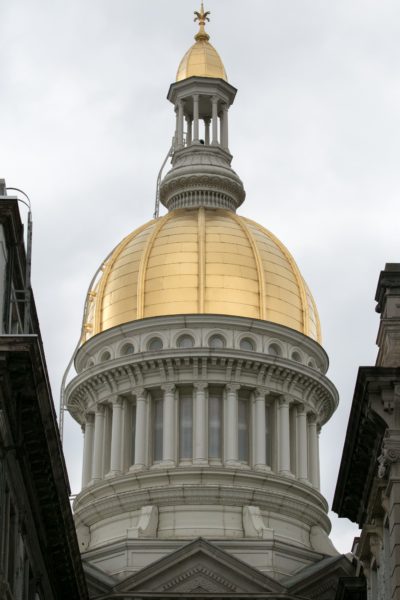
In its role as a facilitator, Greater Trenton is making sure the business community knows all about one of the main advantages that Trenton has: It’s one of only five so-called Garden State Growth Zones in the entire state.
That means it’s eligible for the highest level of business and development incentives under the Economic Opportunity Act of 2013. In late September, Greater Trenton was among several groups that hosted about 75 businesspeople for a summit aimed at showcasing the subsidy programs.
Sowa said he was “amazed that some people in business weren’t aware of details,” especially given how much of an advantage Trenton has under the incentive programs. And one of the more important points that he highlighted is that the Growth Zone provision expires in June 2019.
“I’m emphasizing (this) … to make sure that people do understand there is a time sensitivity,” Sowa said. “And we need to make sure we get people that are interested — who are looking to take advantage of these tax incentives — to get moving now to plan and submit their applications before this sunsets.”

